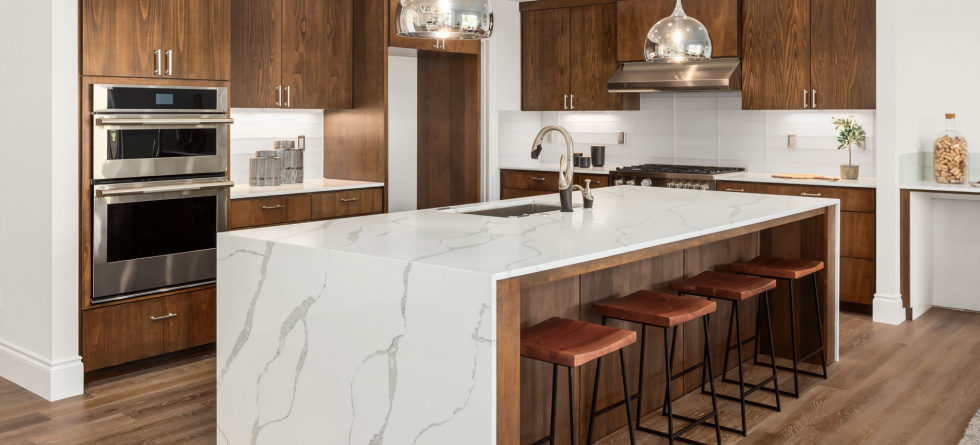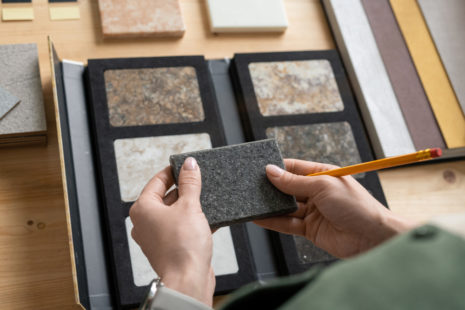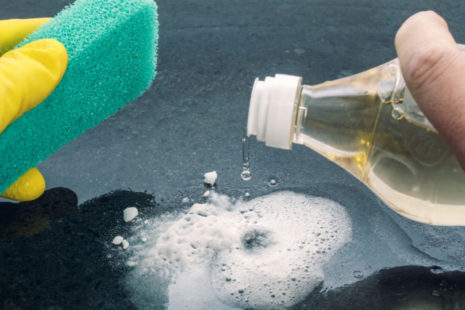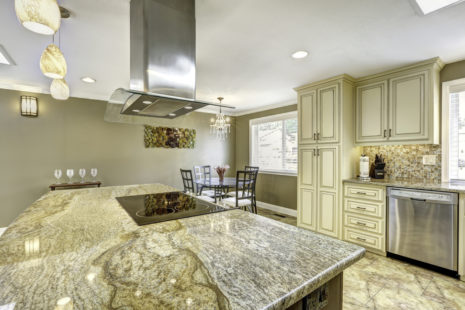Chances are, you went with a nice white quartz countertop because you loved the clean look of them. And quartz is usually highly stain resistant, so you’re in luck! Keeping that luxurious pristine quartz look should be relatively easy. Quartz is great for its non-porous quality that it gets from the manufacturing process. Unlike marble or granite, quartz is a man made stone that emulates the look and feel of a natural stone countertop–but with a few added benefits! Quartz is made by heating 90% quartz chips with about 10% resins and polymers together into the final slab. This makes quartz both heat and stain resistant, not to mention scratch and chip resistant.
During this process, there aren’t any small holes or pores left for liquid to absorb into the stone countertops (like there are with granite say, which is why you have to reseal granite annually).
But that doesn’t mean that quartz is impossible to stain. Especially those white varieties can be more susceptible to staining. When quartz stains, what is usually happening is that there is a chemical reaction between the liquids and the resins in the countertop. These resins are most likely to react to strongly acidic substances, which is why you’re supposed to use pH neutral cleaners on your quartz countertops. The three biggest culprits are foods and liquids, harsh cleaners, and heat stains.
Food and liquids are things like tomato juice or paste, coffee, tea, lemon juice, vinegar, wine, etc. The best approach here is to use cutting boards to help protect your countertops from initial exposure (this has the added benefit of protecting your knives from dulling quickly by cutting on quartz). Besides using cutting boards, be sure to wipe up spills or messes quickly. The longer you let anything sit on the countertop, the better the chances it stains. Which leads to the next issue of what you’re cleaning your countertops with.
If you’re using Windex, vinegar, bleach, or anything else like that, there’s a good chance it can stain your white quartz countertops. The best bet for routine cleaning is a pH neutral cleaner specifically designed for quartz countertops or to just use a few drops of dish soap diluted with water. Use a microfiber cloth and be sure to wipe any excess water off after the cleaning scrub. And that should be all it takes to clean them. If you do have something that requires a little more strength to get off, use something gentle like Barkeeper’s Friend, just letting it sit for a few minutes before wiping it away. If even that won’t get rid of the problem, you can try making a paste from baking soda and water and let that sit on the stain for a while before you clean it off. There’s a chance you could also be getting staining spots from hard water. If your water has a high mineral content, that can dry and form deposits on top of the countertop. If so, use a plastic scraper to remove those deposits.
The last major cause of staining in white quartz countertops is because you are putting things that are too hot on your countertop and the heat is damaging the resins. Quartz is heat resistant up to around 150 degrees Fahrenheit, but beyond that there’s a chance you will damage your countertops. Stones like granite can withstand much higher temperatures, because they are all stone without the resins in there. But with quartz countertops, you’ll want to use hot pads or trivets when putting a hot pan directly on them. This will help ensure your countertops are stain-free and beautifully white their live long life.




